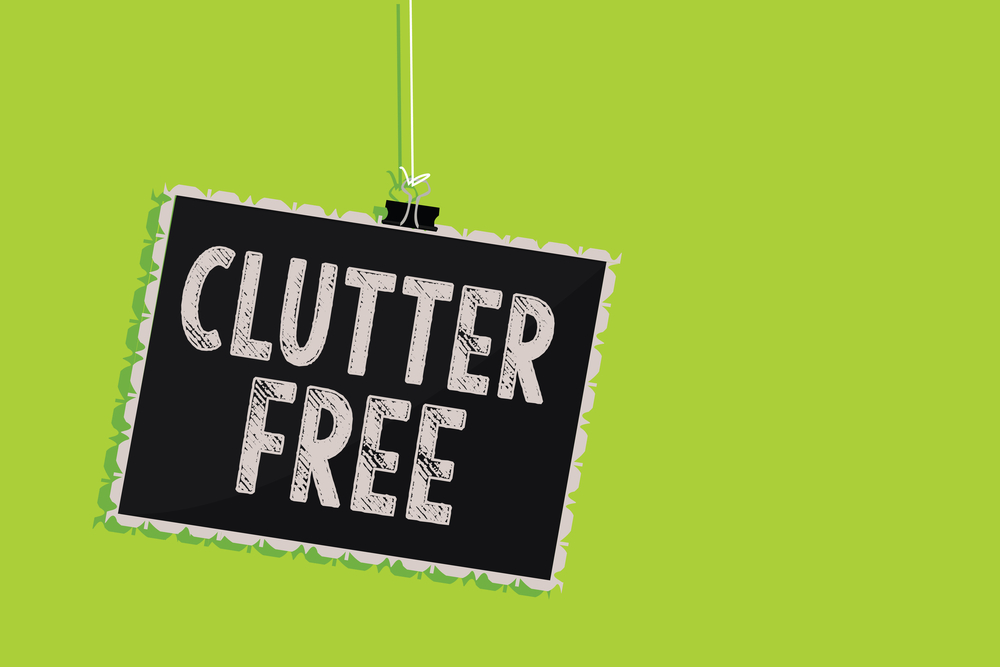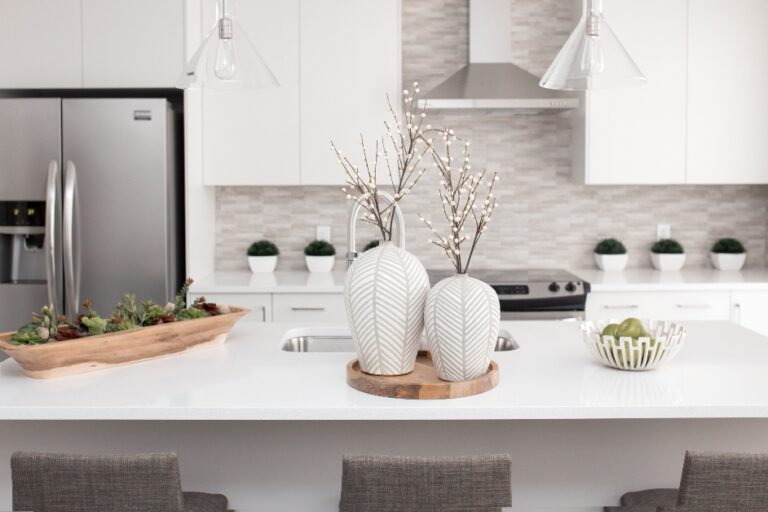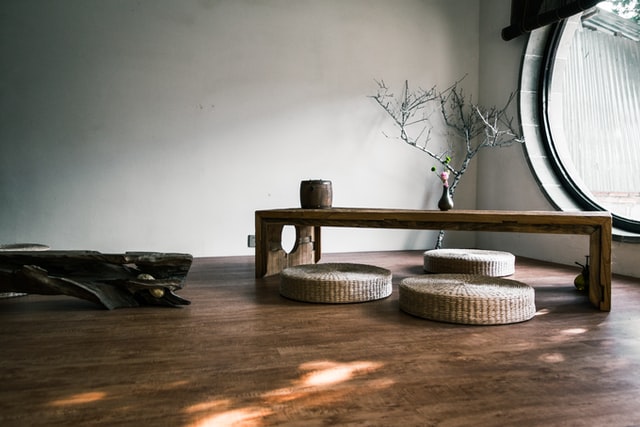11 Simple Habits To Prevent Clutter From Piling Up
If you have recently finished a big decluttering project, you must have been loving the calm and peaceful feeling of your newly decluttered home. After all that hard work, it’s wonderful to finally see your home tidy and clutter-free.
But here’s the thing: to make sure your home stays this way, you’ll want to establish some habits to prevent clutter from piling up again.
In this article, I’ll be sharing 11 simple habits to help you maintain a clutter-free home. At first, incorporating them into your daily life will take some effort, just like establishing any new habits. But once they become part of your routine, you’ll truly appreciate the difference they make.
My family moved to the United States from Asia just right before the COVID pandemic hit in 2020. We used the “stay-at-home” period as an opportunity to practice being intentional when shopping and furnishing our brand new house. As I gradually established these great habits, maintaining a clutter-free home became easy.
I hope these habits will benefit you greatly as they have for me!
11 Simple Habits To Keep Your Home Clutter-Free
1. One In, One Out
Before purchasing a new item, take a moment to go through what you’ve already owned in the same category (ie: scarves, shoes, shirts, lotions…etc), and pick out an unwanted item to declutter.
This way, your stuff won’t have a chance to pile up, and you won’t ever need more storage space. This habit also helps avoid impulsive shopping because after going through what you’ve already owned, you might realize there is no need to purchase that item.
I follow the “one in, one out” rule for my son’s wardrobe.
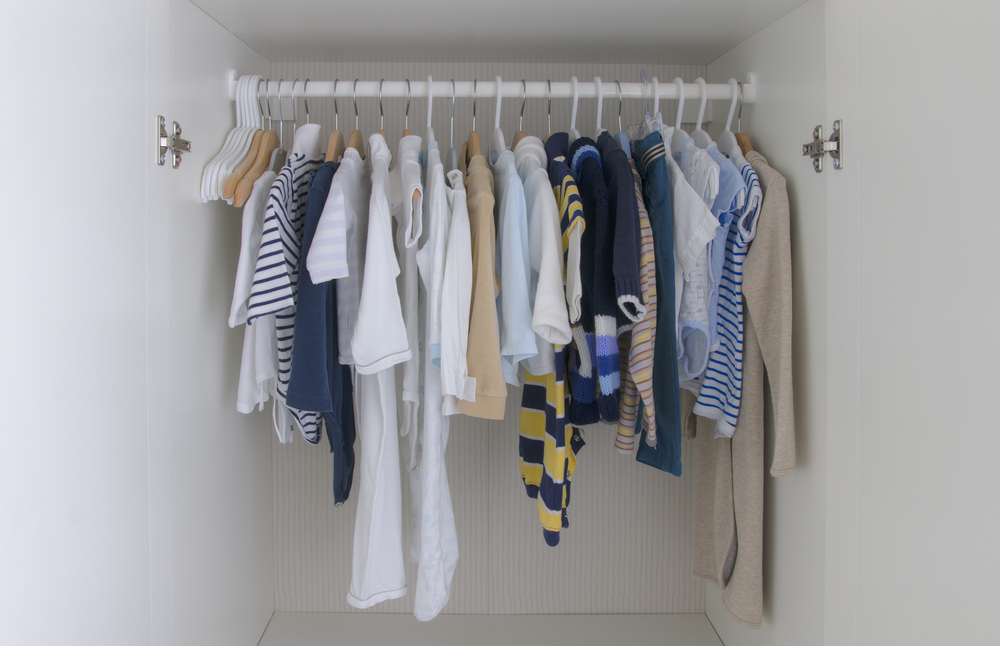
I first came up with a set number of tops and bottoms that he should have. The ‘magic number’ is 7 x (long sleeves Ts + short sleeves T + long pants + shorts). This was the number that needs to be kept constantly.
If my son grows out of two pairs of pants, I replace them with exactly two new pairs, and put the old pairs in the donation box right away. This way, we keep his wardrobe organized and make sure that he always has clothes that fit him well.
Using this rule has also made me more intentional when shopping. I now carefully evaluate his needs and buy only what he truly needs, reducing the number of impulsive buys.
2. Give Your Home A Daily Reset
Take a few minutes each day to give your home a reset by tidying up and putting things in their proper storage space.
To make it a habit, you can set a reminder on your phone or incorporating it into your daily routine. Engage your family members (especially if you have young children), as maintaining a tidy home is a shared responsibility for the entire household.
This is how my family does our reset:
Every evening, after dinner, my husband and I clean up the dining room and kitchen, while our son tidies up his toys.
This way, when we come to our tidy living space the next morning, we feel refreshed and ready to start our day with a good mood.
Additionally, each morning, I also have a ‘mini reset’ of my workspace, which happens to be our dining table.
Before sending my son to school, I take a few minutes to put away the breakfast plates and wipe down the table. By doing this, when I return home, I can quickly transition into “work mode” and start working right away.
These resets don’t take up much time, but they yield significant benefits both to our space and our mind.
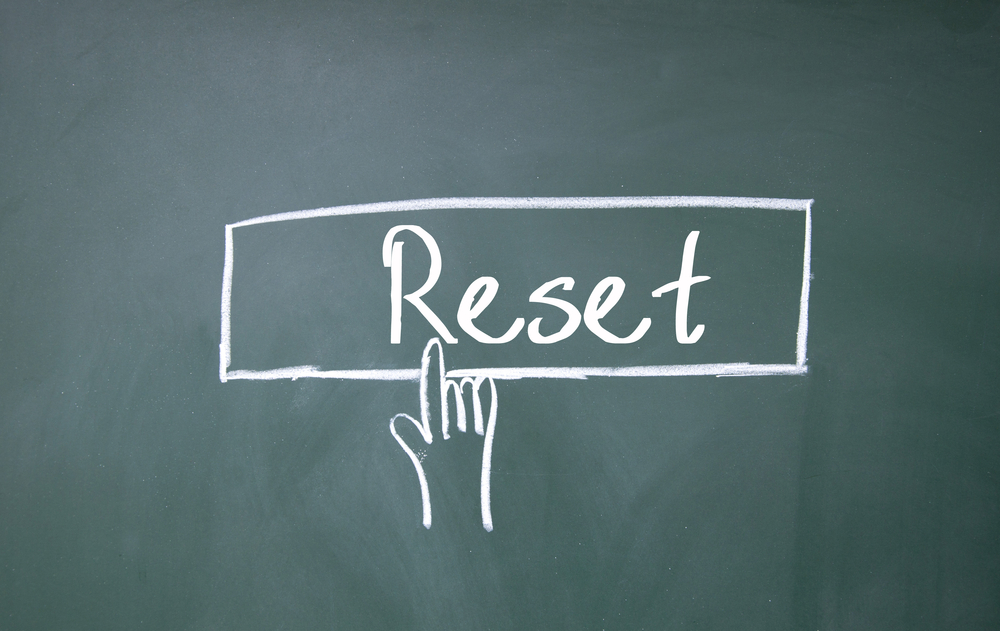
3. Have A Regular Donation Schedule
To establish a habit to declutter regularly, you can schedule regular (either monthly, quarterly, or semi-annually) donation pickups or drop-offs with local charities or thrift stores.
Scheduling donation dates in advance is especially helpful if you struggle with procrastination or need some motivation to declutter.
By committing to a schedule, you are more likely to follow through with your decluttering plans, thus preventing clutter from piling up in your home.
4. Every Item Has A ‘Home’ When Not In Use
When you don’t designate a proper place to store belongings, they tend to pile up on counters, tables, or even on the floor. This can quickly create a cluttered and chaotic environment that can affect your mood and productivity.
To solve the problem, make sure that each item in your home has a designated storage spot and that you put it back in its place after use.
Once you have assigned a home for each item, you must make sure that every object is returned to its designated location after use. This simple habit can help you keep your home organized, tidy, and clutter-free.
In addition, before making any purchase, ask yourself, “Where am I going to put it when I bring it home?”
Many times, we purchase things impulsively without considering where we will store them. Consequently, we end up with more items than we have space for, leading to cluttered and disorganized living spaces.
By taking a moment to think about where you will store a new purchase, you can make informed decisions that support your organizational goals.
5. Evaluate Your Shopping Habits

The easiest way to prevent clutter from piling up is not bringing ‘future clutter’ to your home in the first place.
Take a moment to assess your shopping habits; you may uncover the reasons behind your excessive purchases that lead to later decluttering.
For instance, when I reflected on impulsive purchases I later regretted, I came to understand that I often turned to ‘shopping’ as my go-to solution for problems. What I didn’t initially realize was that there are numerous situations where buying something new doesn’t actually address the underlying issue at hand.
Once I realized this, whenever I encountered a problem, instead of turning to shopping for an item that ‘might’ solve the problem, I would find out the root cause and then seek the proper solution, which might not involve making a purchase.
6. Put Away Seasonal Items When the Season’s Over
Seasonal decorations, seasonal clothing, and items for special occasions can take up valuable space when not in use. Create dedicated storage areas for these items and ensure they are neatly organized when not in season.
For instance, when summer transitions to autumn, neatly pack away your summer clothing, beach gear, and outdoor furniture cushions. Label the storage containers to make it easy to locate items when the season comes back around. By doing this, you keep your living space uncluttered and ready for the current season’s essentials.
7. Don’t Take Free Stuff If You Don’t Need It
One of the common traps that lead to clutter is accepting free items simply because they’re free. It’s easy to think that if something is free, you should grab it. But remember, every item, even free ones, take up space in your home. Before accepting freebies, ask yourself if you genuinely need or love the item. If the answer is no, it’s better to pass it up. By being selective about what you bring into your home, you’ll avoid unnecessary clutter.
For example, a friend offers you a free chair they no longer need. While it’s free, if it doesn’t match your decor or serve a purpose in your living room, it’s best to politely decline. By doing this, you’re preventing the accumulation of items that don’t fit your lifestyle.
8. Keep Flat Surfaces Clear
Flat surfaces like the kitchen counter and coffee table are clutter magnets. It’s incredibly easy for these spaces to accumulate mail, books, and other miscellaneous items. To prevent clutter from piling up on these surfaces, make it a habit to keep these surfaces clear on a regular basis.
For your kitchen counter, have a designated place for daily essentials like keys and mail. Use storage solutions like baskets or trays to keep these items organized. As for your coffee table, try to maintain a “clean slate” each evening by putting away any items that don’t belong there. This simple routine can make a big difference in keeping these areas clutter-free.
9. It’s Okay to Miss a Good Deal if You Don’t Love It
Sales and discounts can be tempting, and many people end up with items they don’t truly love just because they were a great deal. However, if you don’t have a genuine need or passion for an item, it’s better to resist the urge to buy it. This habit not only prevents unnecessary expenses but also helps keep your home clutter-free.
For instance, you might come across a fantastic deal on a trendy piece of clothing that doesn’t quite fit your style. In this case, it’s okay to pass it up. By only purchasing items you genuinely love and need, you’ll reduce the chances of accumulating clutter.
10. Declutter on a Regular Basis
To maintain a clutter-free home, decluttering should be an ongoing project, not just a one-time event. Set aside some time each week or month to go through your belongings and identify items you no longer need. This process can include sorting through your wardrobe, kitchen cabinets, or storage areas.
Regular decluttering sessions help you stay in control of your belongings and prevent clutter from building up over time.
11. Handle Junk Mail ASAP
Junk mail can quickly accumulate and clutter your space if left unattended. Make it a habit to handle junk mail as soon as it arrives. Have a recycling bin or trash bag nearby, and don’t let it pile up on your counters or tables.
For instance, when you receive junk mail, take a few moments to sort it into recycling, shredding, or action piles. This small habit will help you keep your space free from paper clutter and maintain a clean, organized environment.
Conclusion
Clutter can quickly pile up and make our homes feel disorganized and overwhelming.
Fortunately, there are several tips and tricks that can help prevent clutter accumulation and create a more functional and organized living space.
Remember what these habits are?
- One in, one out
- Give your home a daily reset
- Have a regular donation schedule
- Every item has a ‘home’ when not in use
- Evaluate your shopping habits
- Put away seasonal items when the season’s over
- Don’t take free stuff if you don’t need it
- Keep flat surfaces clear
- It’s ok to miss a good deal if you don’t love it
- Declutter on a regular basis
- Handle junk mail asap
Which one(s) of the above list would you like to try?
